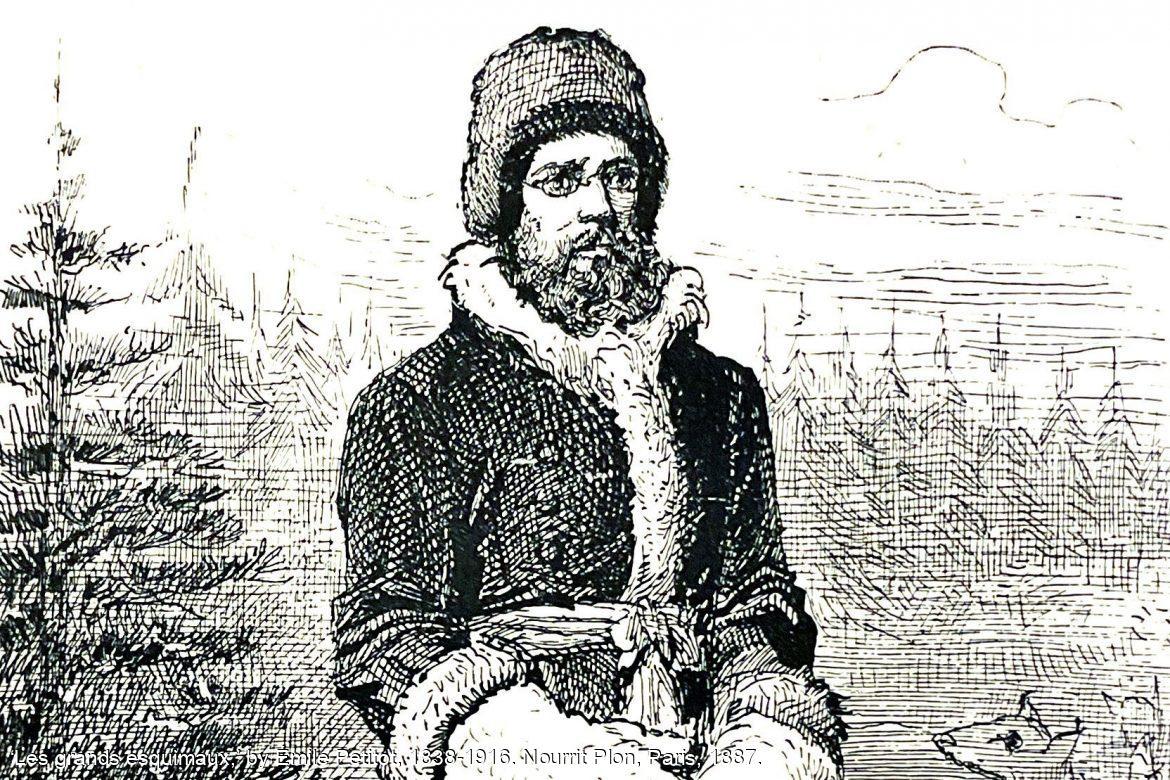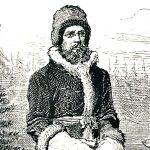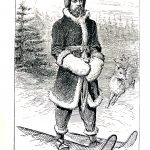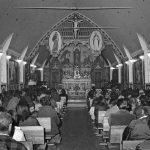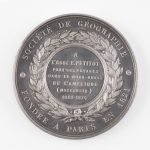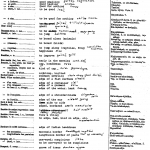1862
Father Émile Petitot
In 1860, Émile-Fortuné-Stanislas-Joseph Petitot joined a Roman Catholic order dedicated to serving “those most in need,” The Oblates of Mary Immaculate. After training in France, Petitot was ordained as a priest and arrived in the Northwest Territories in 1862.
Father Petitot’s first posting was at the Fort Providence mission. It quickly became apparent to the Father that missionaries needed a working knowledge of the various Dene languages to secure their religious conversion. He immediately began to prepare dictionaries in Tłı̨chǫ, Chipewyan, and Gwich’in. Father Petitot also became interested in learning about the land.
In 1864, Father Petitot was moved to Fort Good Hope to work under the supervision of Father Jean Séguin. The Roman Catholic church felt that this supervision would help Father Petitot overcome his obsession with exploring and mapping and return to his mission.
Undeterred, Father Petitot made ten trips, between 1865 and 1879, around Great Bear Lake and the Mackenzie Delta. He not only travelled to convert the Dene and Inuvialuit but also produced detailed maps, sketched the landscapes and the people he met, recorded Indigenous words for his dictionaries, and wrote down stories and legends. Father Petitot helped design and decorate Our Lady of Good Hope Church in Fort Good Hope, designated a National Historic Site in 1977. His efforts were limited in the Inuvialuit regions as the Inuvialuit believed Petitot contributed to a severe influenza outbreak.
In 1874, Father Petitot returned to France to oversee the publication of his Dictionnaire de la langue dènè-dindjié. He was honoured for his work in the Northwest Territories by induction as a member of both the Société d’Anthropologie de Paris and the Société Philologique. Petitot returned to the Northwest in 1876 and spent six years struggling with his mental health and religious mission. He briefly married and was finally forced to return to Montreal to be placed in an asylum. Petitot returned permanently to France one year later, conforming to his role as parish priest until he died in 1916.
In 1975, the Canadian government unveiled a plaque honouring his work in the Northwest Territories. The Fort Providence Métis Nation acknowledged the valuable nature of recording information during his travels. However, in 2001, the City of Yellowknife became aware of Petitot’s inappropriate behaviour with young people. It changed the name of a city park from Petitot Park to Somba K’e in response to complaints that his name should not be honoured. His life and story represent the complexities of how people should be remembered.
